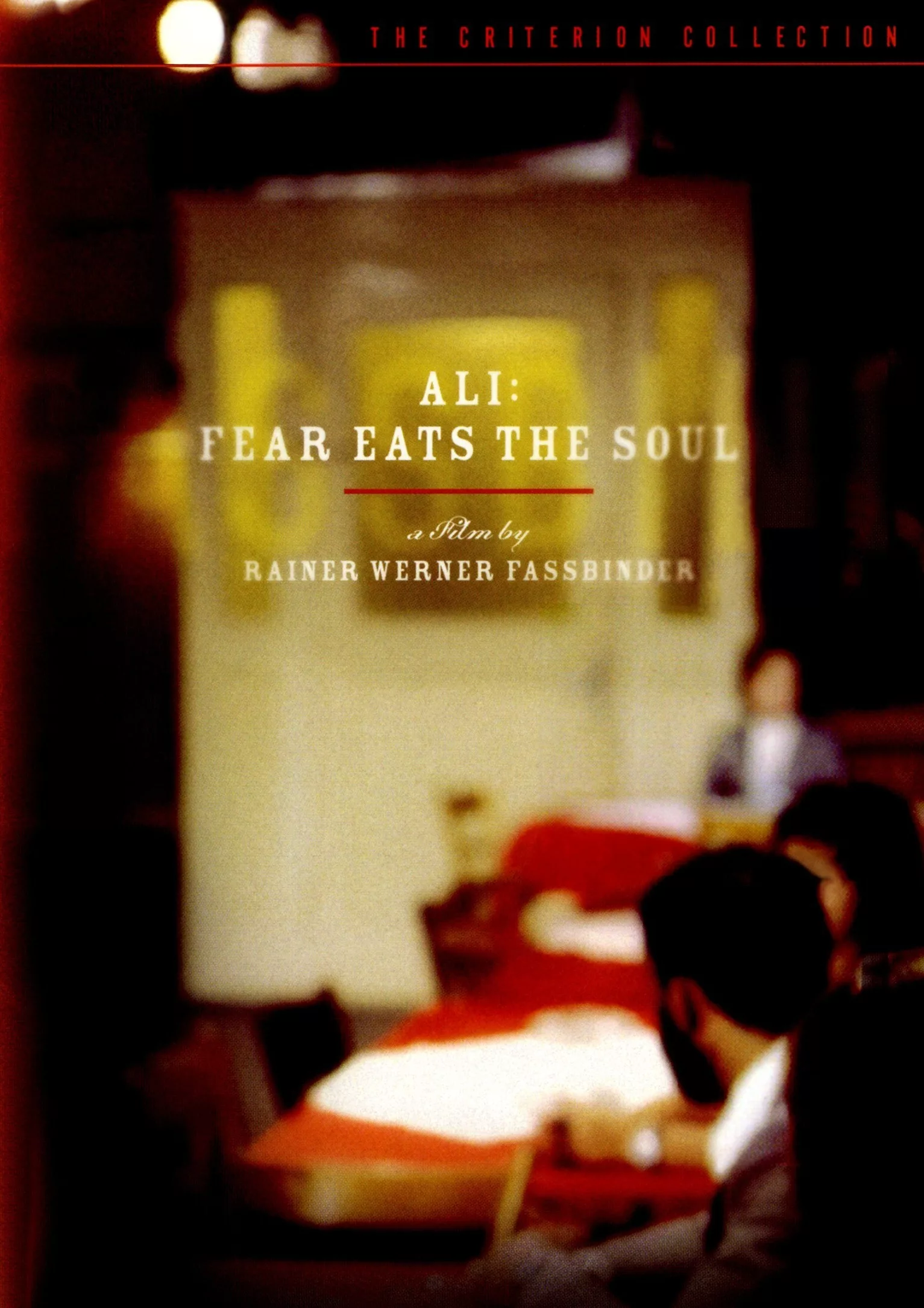Although “Ali: Fear Eats the Soul” was one of the first films by Fassbinder to make an impression outside Germany, his style was already formed and his confidence unshakable. In it, he creates an unlikely social situation and watches it, deadpan, through scenes of excruciating embarrassment and pain. An admirer of the soapy Hollywood melodramas of Douglas Sirk, he liked to add sudden, unexpected dramatic turns, and while in a lesser director they might seem like affectations, in a Fassbinder film they feel more like blows from the fly-swatters of the gods.
“Ali” is about an unlikely love that grows between a 35-ish Moroccan immigrant laborer and a 60ish cleaning lady, in a German city that seems to have left them both stranded and lonely. He is handsome and muscular. She is short and pudgy. They meet in a bar, in one of those Fassbinder scenes where silences and mutual embarrassments are stretched out until they pass through comedy and come out as weirdly constrained parody — a cross between TV soap opera and the paintings of Edward Hopper.
Fassbinder borrows from Sirk the technique of framing shots so stringently that the characters seem fenced in, limited in the ways they can move. He’ll lock Emmi (Brigitte Mira) in the foreground and Ali (El Hedi Ben Salem) in the background in such a way that neither could move without leaving the frame, and make you aware of that: He’s saying visually that they are locked into the same space, without choices. They remain motionless in his carefully composed visual settings while we absorb their dilemma and (gradually) the fact that he’s calling attention to it. In the quietest of ways, Fassbinder is breaking his contract with the audience, which expects plausible fiction. He nudges us to get outside the movie and look at it as absurd, as black humor, as comment on these people so hopelessly trapped in their dreary surroundings and by their fates.
Is he sometimes being deliberately funny? I’m sure of it. His style and tone are so adamant that audiences sometimes just sit in silence, uncertain of the right response. With some films, that indicates the director’s loss of control over tone. With Fassbinder, it seems to be the response he wants: confusion and curiosity in the face of a new cinematic language that won’t use clichés, except to draw them out beyond plausibility.
Consider, for example, a scene where Emmi gathers her family members (one of them played by Fassbinder) to meet in her living room and be introduced to her new husband. They sit stiffly in chairs, lined up, facing the door like panelists on some kind of domestic game show. She summons Ali, who appears in the door. The children and in-laws now realize Emmi is married to a black man half her age. They stare. A silence attenuates until it threatens to snap. Then one of the family stands up and methodically kicks in the screen of her TV set. It is easy to imagine countless ways this scene could have been handled — but only Fassbinder would have approached it this way, with such coldness and cruelty.
There is another scene in which Ali, now more lonely than ever, visits the apartment of the blowzy barmaid at the tavern where he earlier met Emmi. She watched sardonically as their “romance” developed over Cokes. Now she poses in her doorway like the model for a pulp paperback, and asks him what he wants. She does not anticipate his answer: “Couscous.”
“Ali: Fear Eats the Soul” was the third Fassbinder film I saw, after “Merchant of the Four Seasons” (1971) and the magnificent “The Bitter Tears of Petra Von Kant,” in the early 1970s, when the Chicago Film Festival first introduced him to audiences outside Germany. As I watched those films, a curiosity and excitement grew inside of me. Fassbinder was employing the materials of melodrama, but with a bluntness and love of arbitrary plot development that showed a freedom from the form. What was he saying? That our lives are made of clichés and melodrama? That the movies are made of them — and the more aware of that we are, the better?
Later, after encounters with Fassbinder at the Cannes and Montreal film festivals, I began to understand that his films, apparently so cold, apparently manufactured so cynically out of parts taken off the shelf, were in fact a direct expression of his own personality: His pain, self-loathing, loneliness, compulsiveness, and restless energy. Look here, he seemed to be saying, at these pathetic creatures trapped in a web of someone else’s weaving. They do not know they are clichés. And even worse, the clichés themselves are not well-behaved, but break in the middle, leaving them without even the consolation of predictability.
When Fassbinder died in 1982, at 36, of cocaine abuse, I felt a real sense of loss and anger. He was young, prolific, the author of an original vision. He made movies that forced you to deal, not just with them, but with the idea of watching a film. In 13 years he made more films than most directors make in a lifetime, and threw in the 14-part TV series “Berlin Alexanderplatz.” What would he have done next? Or was his work so linked to his self-destructiveness that one would not have been possible without the other?



















